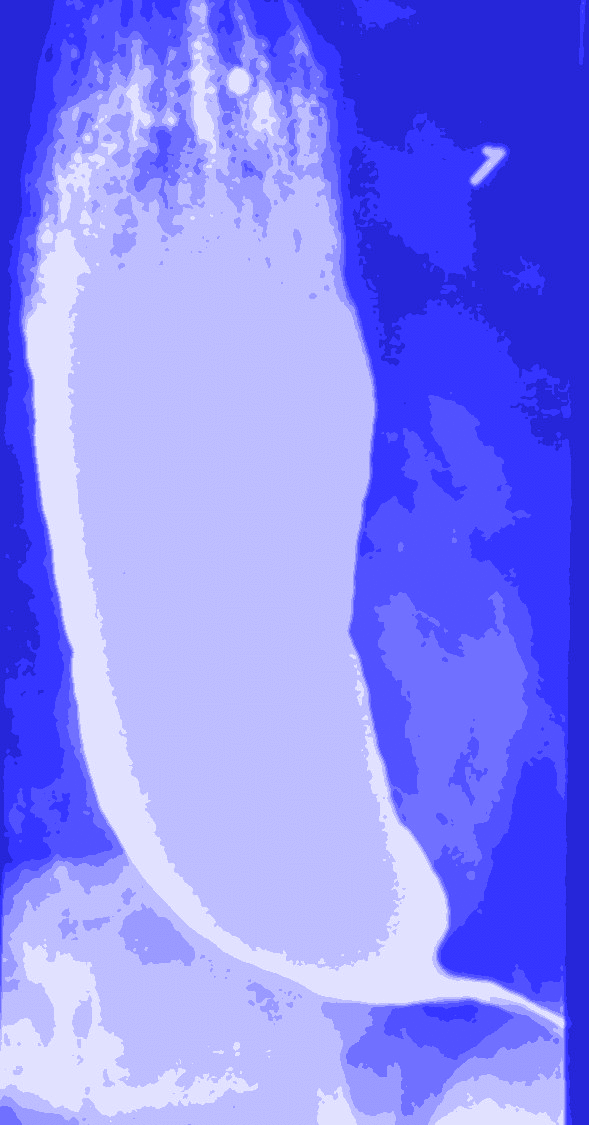Idiopathic (primary) achalasia: a review
- Jul 27, 2015
- 4 min read
Here are my comments on the paper Idiopathic (primary) achalasia: a review
The authors state that the incidence is increasing which is quite disheartening. But the study they reference for this says, "Whether this reflects a true rise in incidence, or greater awareness and improved diagnosis of the condition remains uncertain though."
They state that the first "clinical symptom" is difficulty swallowing. Maybe it is the first clinical symptom recognized by these doctors, but it may certainly not be the first clinical symptom of the disease. See my symptom survey and the research that accompanies it.
Several times they refer to the disease as irreversible. Again, I believe we do not have confirmed "cures" because lifestyle management is simply not part of the medical treatment paradigm. They mention inflammation many times and this is what MUST be addressed as soon as a patient realized that "something is not right" to change the disease trajectory.
CAUSE
They state the cause is "unclear" and do not reference this paper:
http://www.ncbi.nlm.nih.gov/pubmed/24997987
Key points:
"It is proposed that genetic predisposition in such individuals probably increases their susceptibility to acquiring achalasia after exposure to common environmental factors that may play a role in the pathogenesis [2]."
"It is proposed that genetic predisposition probably increases the likelihood of triggering autoimmune mechanisms after exposure to viruses or other common environmental factors [61]."
So, with what we know about epigenetic triggers, why is lifestyle management not part of the treatment?
DIAGNOSIS
Next is the laughable comment, "The diagnosis of idiopathic achalasia is relatively straightforward with a well-documented medical history, radiography, and esophageal motility testing." Yet, the very next sentence says, "In the early stages of the disease, dysphagia may be very subtle and can be misinterpreted as dyspepsia, poor gastric emptying, or stress."
And then later in the paper the authors state, "A majority of patients are misdiagnosed as having reflux disease given regurgitation."
SO WHICH IS IT? Maybe we should invite these docs to our group since most would agree that misdiagnosis/delayed diagnosis seems to be the norm.
TESTING
Manometry is the gold standard for diagnosis, but what is the benefit when it comes to treatment? I will let all of you think on that one.....
In terms of follow-up testing, why is the timed swallow not the standard?
"Therefore, it is suggested that the timed barium esophagogram not only assesses treatment shortly after therapy, it can also predict the poor response to the treatment if the patient has retained barium post-pneumatic dilation."
If your doctor is unfamiliar, then get a new doctor!
TREATMENT
A very important point about diagnosis and treatment is that the testing performed for an Achalasia patient - manometry, esophagram, EGD - are used to determine treatment OUTSOME implications, not the CHOICE of treatment.
"...esophageal pressure topography can help characterize the motor patterns with treatment outcome implications."
"The choice of initial therapy should be guided by patients’ age, gender, preference, and local institutional expertise."
The results of testing and the type of Achalasia (1, 2. 3) really do not change the choice of treatment unless the person is very old and/or too ill to be strong enough for the current medical treatment options.
And, it is sad that the "Management Algorithm" is simply guided by surgical risk.
The paper reviews all the options and makes the comment, "...it is not surprising that the treatment is entirely palliative."
Pharmacologic treatment (calcium channel blockers and nitrates)
"Therefore, this treatment modality is reserved for patients who are not candidates for pneumatic dilation or surgery, have failed botulinum toxin injections, or as a bridge to more effective therapy [11]"
Botulinum toxin treatment
"Overall, BT is recommended to be most effective in elderly patients, in whom dilation or surgery represent a high risk."
Pneumatic dilation
"Pneumatic dilation (PD) is the most effective non-surgical treatment option for patients with achalasia [9]."
Heller and POEM
The paper discusses both and discusses the types of fundoplications. Bottom line: the skill of the surgeon rules!
A comparison of the procedures is made with outcomes, "remission rates," and "success rates" quoted from different studies. Again, I will ask what truly defines a "remission" and/or "success." The outcomes after long term follow up (best quoted is 77% at 10 years) are simply not good and post-surgical side effects (direct effects of surgery in my book) are prevalent.
CANCER
"The information on cancer risk in achalasia is insufficient. There are many studies on this and the great majority of them suggests a significantly increased risk [76]; however, there are currently no recommendations for surveillance of achalasia patients for esophageal cancer." Huh?
If Achalasia is, "...one of the most investigated motor disorders of the esophagus [4], [10], " what gives? Why is there not a follow-up protocol established in the literature and used clinically. Seems pretty simple. Use my diagnostic protocol in my book. Take the symptom survey annually. Don't wait more than 2 - 3 years to have an esophagram and EGD. Yes, balance the radiation exposure and general anesthesia exposure and risk with the value of information it provides. That is why I am not having any studies done this year. I have decided that an annual esophagram is too much UNLESS symptoms change.
What really burns me is in the conclusion, they authors state, "Although it cannot be permanently cured, excellent palliation is available in over 90 % of patients." Huh? What? Not according to everything else in the paper! If someone just read the conclusion, they would think Achalasia is a cakewalk. I find this reprehensible and irresponsible as both a doctor and a patient.
What are your thoughts and comments?
http://www.ojrd.com/content/10/1/89





Comments